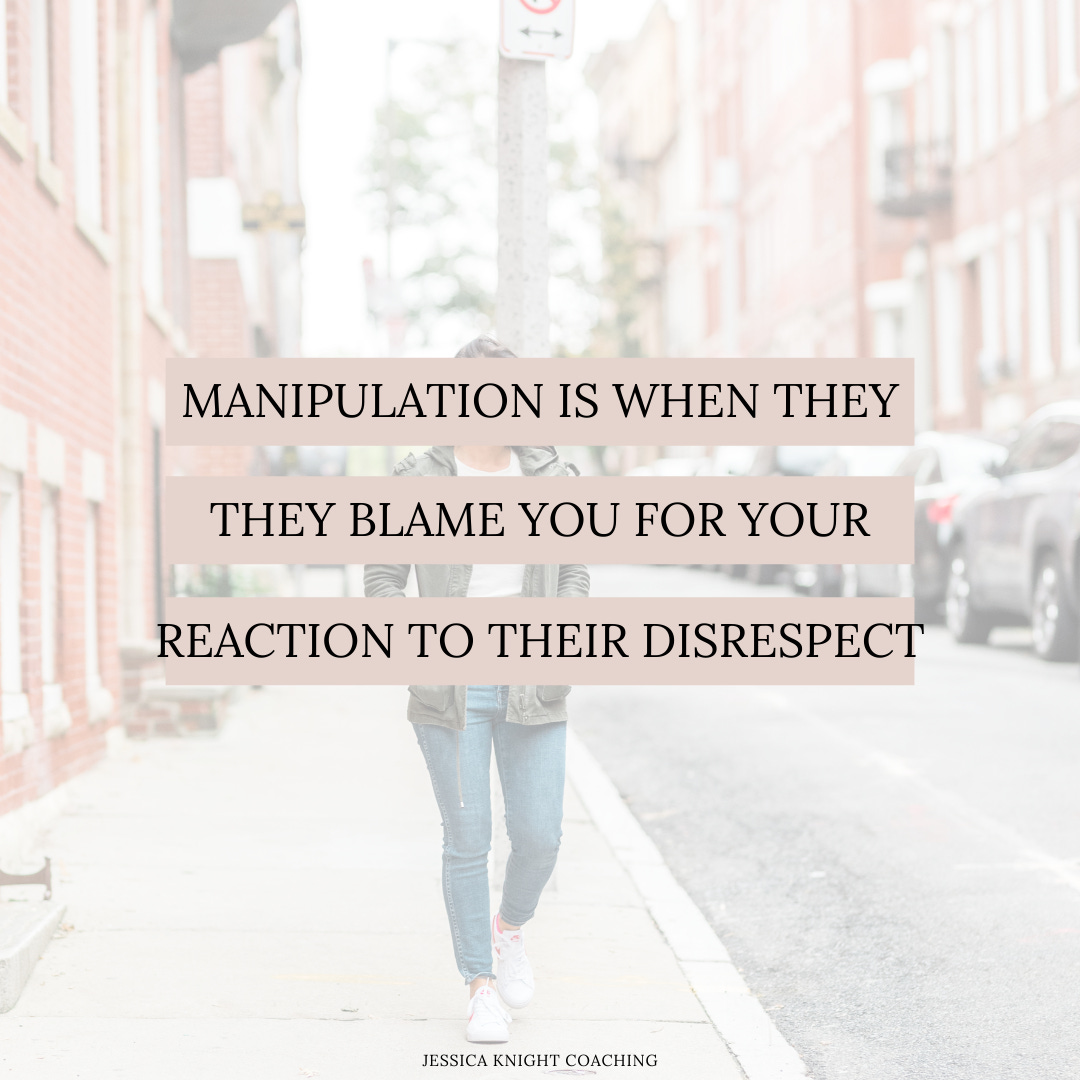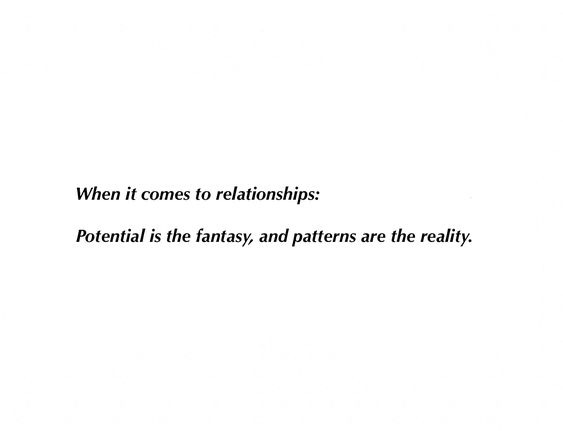I used to tell myself I just didn’t understand him yet.
Every time a conversation left me confused or sad, I told myself it was something I missed. Maybe if I listened harder. Maybe if I tracked his tone. Was I in my own way? Was I not seeing his logic? I would downplay his sudden flips and his made-up rules. I believed his version of my voice. I thought if I could decode him—understand how he “works”—I could feel safe. If I just figured him out, the anxiety would stop.
It never did.
I didn’t know it then, but this is how emotional abuse often starts. Not with screaming. Not with threats. With slow erosion. With logic that turns in on itself. With someone convincing you that your reactions are the real problem.
Let’s call him G. G didn’t yell right away. That came later. In the beginning, he came off calm. He didn’t “do drama,” as he’d put it. He talked like someone with clarity. He was measured and rational. He had a good job and long-time friends. His family seemed close. All of that made me think—maybe I was the one who had something to work on.
Maybe I was just too sensitive.
Maybe I was misinterpreting.
Maybe this was about my attachment style.
Maybe it was my childhood trauma coming up.
But it wasn’t. The harm was just quieter.
There were good moments, of course. I remember sitting on the rooftop of his apartment one night, playing a card game, letting the sun set behind us. I let myself believe that was the real him. That the rest was just a phase we’d move through.
But the pattern wasn’t connection. It was blame and anger. Strong reactions that shut me down. He didn’t need to yell to intimidate me—he just needed to act like he was right.
G made me feel irrational simply because I had emotional needs. Because I was anxious. Because I asked questions. Because I cried sometimes.
He had anger… and PowerPoint decks.
Not a metaphor. Not an exaggeration.
He would literally screen-share documents breaking down our texts—complete with bullet points, flow charts, and fake logic to back it up. “This is how I process,” he’d say. “I’m just trying to help you see your impact.” He said I didn’t understand how I “sounded in writing.” That he could tell me what I meant better than I could. That he was interpreting reality correctly.
Once he told me:
“You’re emotional, and I’m logical. If you could see it my way, you’d understand that none of this is personal.”
It wasn’t a relationship. It was a courtroom. And I was always on trial.
When I asked, “How do you know the tone you applied is accurate to the question I asked?” he told me there was no other way to see it. That wasn’t truth. That was control. A way to keep me confused and second-guessing myself.
G didn’t talk about his exes. He talked about how he didn’t have any. Because no one had ever matched his standards. No one was special enough. No one blended well with him. He said this like it was something to be proud of—like it meant he was more evolved.
And I believed it. I thought it meant he was careful and discerning. It made me feel special too, so I wanted to believe it was a good thing.
What it really meant was no one stayed.
Later, I’d learn he had ADHD—but not because he told me up front. It came out mid-conflict, after he forgot something he swore he’d do. He spiraled, blamed me, made a giant mess—and when he couldn’t blame me anymore, he disclosed he was out of medication. All this time, he acted like I was the reason for his disorganization, even though we didn’t live together.
But with his ADHD, he didn’t manage it. He weaponized it. He used it to excuse himself from every rupture—and to say I was cruel for not understanding.
Over time, I saw the pattern. He only wanted to do what felt good.
Any time I had anything to talk through, and mostly, it was to repair, he would stonewall me (because that did not feel good for him).
I’d try to bring something up, and he’d cut me off with:
“I can’t talk about this right now.”
“You’re bringing this up at the worst time.”
“You want to list problems instead of solving them.”
“I can’t handle being your punching bag.”
But if it was my behavior he wanted to dissect? Suddenly he had energy. He’d remember everything I ever said. Every text. Every sigh. Every “tone.” He could stay up all night parsing it. That was his word—“Let’s parse this.”
It wasn’t parsing. It was punishment.
There was a night during COVID when I was barely holding myself together. Like so many of us, I was managing depression behind the scenes—still showing up, still smiling, still trying, but feeling really desperate and separate from “real life.” But I was sinking. I remember quietly telling him I was thinking about going on medication to help me get over the hump. I started Googling SSRIs because I didn’t want to keep feeling like I was surviving my own life. I was scared to say it out loud because I had many limited beliefs about medication. Instead of scrolling Instagram like he did, I was googling the causes and effects trying to get my head comfortable with the idea.
He saw what I was doing, yelled at me, packed up his stuff, and told me I’d ruined the night. That I “always made everything heavy.” That he “just wanted a normal evening,” and I’d made that impossible.
I was Googling something. That’s all.
And somehow, that made me feel ashamed for even existing. I remember thinking I should have just lied.
That was when the mask started to fall off.
He began hiding things. Not sharing. Hinting. Withholding. And when I asked questions, he’d say, “You’re overanalyzing again.” If I got upset, I was “projecting.” If I got confused, I was “too reactive.” He once hid my things in his apartment and acted like I was crazy for thinking that was strange. It didn’t feel playful. It felt like erasure.
I used to spend hours rehearsing how to bring things up. Bracing for the lecture that would come. Trying not to trigger a shutdown or a spiral. I thought if I said it calmly enough, rationally enough, gently enough—I’d be heard.
I never was.
He always had an explanation for why my memory was wrong, why my logic was flawed, why my tone was the real problem.
“That’s not what happened.”
“I think you’re forgetting what you said.”
“You just want to be mad at me.”
At one point, his mother sent me a list—a literal list—of how to handle him. Things like:
“Don’t expect him to do anything after a long day.”
“He’ll blow up if you confront him.”
“He resents doing anything that wasn’t his idea.”
“The only way to stay with him is to not care.”
That wasn’t a guide to partnership. It was a manual for self-abandonment.
And then his sister reached out. She said he had always been angry. That he lived in his world. That he didn’t care who he hurt. That he knew how to hit where it hurts and that no one in their family knew how to make him stop. She said, “You’re way too amazing for him.” I was floored. She just gave me the playbook.
They weren’t just warning me. They were telling me to run.
But I didn’t run—not right away.
Every time I tried to leave, he’d flip it on me. I was never able to leave and feel okay about it. We were intertwined—shared trips, travel, routines. We had just started couples therapy. I thought maybe we could end things on better terms. I thought that would make it hurt less.
He kept saying things like, “I just want to help you.” “You don’t let anyone help you.” “Why do you always assume the worst in people?”
And it worked. It made me question myself. It made me think I was the difficult one. That maybe I just had trust issues. That I was the reason we kept hitting these dead ends.
Eventually, my body started to go offline. That’s how it felt. Not dissociation in the clinical sense—but this feeling of being slightly above myself. Detached. Dull. Because I already knew, mid-conversation, that it wouldn’t matter what I said. The outcome was pre-set.
I didn’t realize I was caught in a loop where I felt incomplete without him. Where I was afraid of losing someone who made me feel small. Where I no longer knew what I needed, because all I was doing was managing his needs.
Eventually, my body shut down. Not in a clinical sense, but emotionally. It wasn’t a decision—it was a survival response.
Do I keep arguing with someone who won’t hear me?
Do I keep performing sanity to a man who rewrites reality?
I shut down because I didn’t have a choice. After seven months of trying every single thing, I stopped talking. I went quiet. Measured. Careful. I stopped aiming for connection. I just wanted the conversation to end.
I wanted to just find a way out.
The relationship became a logic trap. If I could just get the words right, maybe he’d stop dissecting them. If I could just keep the peace, maybe I wouldn’t be blamed for the next spiral.
But I could never win.
Because G didn’t want a partner. He wanted someone to manage his chaos. Someone to reflect his superiority. Someone to carry his dysfunction without calling it what it was. Someone he could yell at when he didn’t know what else to do with himself.
The moment that broke the spell didn’t happen while we were together. It came in an email.
After three months of no contact, he sent a long, rational-sounding message. He said he hoped we could connect again. That he read one book. That he hoped I saw “how much he tried to help.”
And something just clicked.
I didn’t cry. I didn’t argue. I didn’t spiral.
I just knew: This is what it’s always been.
I didn’t know what narcissistic abuse was back then. I thought he just had anger issues. That maybe I was too much. I didn’t know logic could be weaponized. That someone could use calmness like a knife. That superiority could be a mask for dysfunction.
But now I do.
And if you’ve been in a relationship where:
You weren’t screamed at, but you were emotionally steamrolled…
You weren’t insulted, but you were picked apart…
You weren’t abandoned, but you were erased—
That was abuse.
It doesn’t always leave bruises. Sometimes it leaves you second-guessing your entire reality.
You are not crazy for leaving.
You are not fragile.
You are finally free.
And freedom is quiet at first.
It feels like doubt.
But eventually—it sounds like your voice again.
If you felt seen reading this, you're not alone.
🎙️ Listen to my podcast, You Are Not Crazy, for lived experience, trauma education, and real talk about emotional abuse: https://youarenotcrazy.buzzsprout.com
💬 Need support? Book a 20-minute Intro Call and we’ll figure it out together.
You don’t have to untangle this alone.












I managed to leave a similar relationship when I finally saw the pattern. After three years of constant fights and misery and me always being told, and believing, that everything was my fault, we had one autumn when we were getting along well, and I thought that maybe we had worked through our initial problems and learned to deal with each other. But then there was a spectacular blowup at Christmas, and I realized that the calm autumn had been the anomaly, and Christmas was the norm.
"Because G didn’t want a partner. He wanted someone to manage his chaos. Someone to reflect his superiority. Someone to carry his dysfunction without calling it what it was. Someone he could yell at when he didn’t know what else to do with himself. “ Gods, this sounds like my "husband," untreated and unmanaged ADHD and all. Ugh. Glad you got away from this asshole!